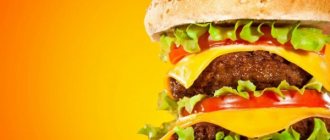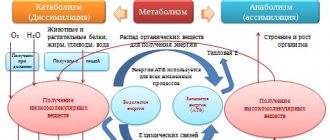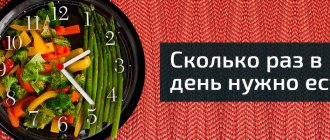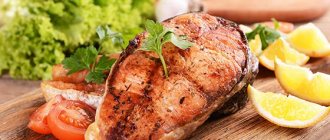Why does a person overeat and cannot stop?
Overeating has become a problem due to the availability of a variety of high-calorie foods and all sorts of tasty treats.
- The problem of gluttony is inherent in us at the genetic level, since ancient times, when we had to eat everything. In ancient times, there were no refrigerators or supermarkets where you could quickly replenish food supplies.
- The problem of overeating is associated with psychological factors. A person lives constantly under stress, and food is a natural process of obtaining pleasure. People who are dissatisfied with life are more likely to eat away at their problems and emotions. We may not notice how we have eaten too much and overeat during times of boredom, despondency and fatigue.
How much to cook and how
You should choose food that is healthy for the body, and not just tasty. Before you cook anything, you need to think first about your health. If you approach this issue responsibly, you can achieve good results in losing weight. You should also not cook a lot of food. It is better to cook for one or a couple of times. This will reduce the likelihood of possible additions and eating after someone. If, for example, the children did not finish dinner, it is better to leave this food. You should not be guided by the principle “it’s a pity to throw it away,” because this most often leads to obesity. It also happens that there is often simply no opportunity to cook. There is also a way out of this situation; you can cook a lot, just freeze it in separate portions for one time. This way you can avoid overeating and establish a proper diet.
Healthy food
Human psychology is designed in such a way that the more food on one plate, the faster you need to eat it all. This is completely wrong, since this misconception leads to an inevitable excess of fat deposits. You should try to eat from small dishes. This way you can reduce your food intake at one time and relieve the burden on your digestive system. Portion control is a very important part of the weight loss process.
If you eat erratically and include snacks, then a food diary will help answer the question of how not to eat and lose weight. Such a diary should be kept by a woman or a man who cannot stop eating a lot. It will be necessary to record every food intake, even the smallest snacks. This way you can analyze your overall diet and adjust it. Nutritionists strongly recommend organizing your food intake using the food diary method.
Note! Constant snacking contributes to the deterioration of intestinal function and the gain of extra pounds.
Overeaters Anonymous Test
These questions will help you determine the extent of your overeating.
- Do you eat when you are not hungry?
- Do you eat faster than 20 minutes?
- Do you feel remorse and guilt if you overeat?
- Do you often think about food during the day?
- Do you like to eat alone?
- Do you plan food feasts with delicious food every now and then?
- In front of people, do you limit yourself in portions and quantity of food, and then alone make up for lost time?
- Do you try to go on a strict diet from time to time in order to lose weight faster?
- Does your weight affect how you feel about life?
- Do you resent the words when they tell you: “Use your willpower to stop your gluttony and overeating”?
- Are you still convinced that you can stick to a diet on your own whenever you want?
- Are you overwhelmed by a strong desire to eat in the evening or at night?
- Is food a way for you to escape from worries and worries?
- Have you sought help from doctors or nutritionists regarding excess weight?
- Is your eating behavior making you unhappy?
Results:
If you answered “yes” to three or more questions, then you have a problem with uncontrollable overeating.
If you answered “yes” to 7 or more questions, you are a real glutton with disordered eating behavior.
What to do if you want to constantly eat at night?
Before bed, most people feel hungry. Walking before bed will help you get rid of this habit. After active outdoor activities, you will have a greater desire to sleep rather than eat. If you still feel hungry, try drinking a glass of water, fruit juice or kefir. Use vegetables or fruits as an evening snack.
Ways to get rid of evening hunger to avoid overeating:
- satisfy your hunger during the day so that it does not visit you at night;
- exclude all fatty foods and foods classified as fast food;
- Instead of eating, use other options to relieve boredom (reading, handicrafts, housework).
Sweet and flour
Sugar is the main component of sweet foods. When it enters the body, this element instantly turns into glucose. Experts have proven that this substance is distinguished by its ability to replenish energy and restore vitality in a short period of time. When eating sweet antidepressant foods, a person feels a surge of positive emotions, but this behavior turns into a real addiction - overeating.
If you are concerned about the question of how to stop constantly eating sweets, then the optimal solution to this problem would not be a complete rejection of sweet and starchy foods, but replacing them with ingredients with a reduced sugar content:
- fruits;
- dried fruits;
- homemade marmalade;
- natural marshmallow;
- homemade jelly.
All
Reducing portions of consumed foods and eating five meals a day does not mean that you have to eat everything, but in minimal quantities. The ingredients for getting rid of the habit of constantly eating are selected in a balanced manner and must be combined with each other. You will have to give up sandwiches, quickly trying several dishes at the same time, as well as fast food products almost completely. When you have a desire to satisfy your hunger, first of all you need to remember the goal to which you are going.
How to overcome Night Eating Syndrome
The main reason for going to the refrigerator at night is stress and feelings associated with anxiety and worry. Under the influence of emotional dissatisfaction, the ratio of hormones responsible for hunger and satiety is disrupted. Their “imbalance” makes you wake up with a desire to eat.
Symptoms of Night Eating Syndrome
- lack of mood in the evenings;
- high-calorie dinners;
- it is difficult to fall asleep without an additional “sweet bonus” after dinner;
- lack of appetite in the morning and “wrong” breakfast;
- eating disorders, regular overeating.
How to get rid of night overeating and stop trips to the refrigerator?
During the day, it is important to eat a balanced diet, follow a meal plan and not overeat.
- Eat heavily for breakfast;
- During the day, drink clean water with lemon or herbal teas without sugar;
- Monitor the caloric content of your diet;
- For dinner, eat protein foods (meat or fish, cooked without fat) with vegetables;
- Last meal 3 hours before bedtime (do not starve yourself after 18-00);
- In the evening, give up flour and sweets. They greatly raise the blood sugar level, after which a strong attack of hunger hits.
How to Stop Eating. Psychology of Eating Behavior.
Writing about food addiction is easy.
Probably sad to read (c)
Good afternoon, friends and colleagues at the canteen, Yaroslav Brin is in touch. Chewing a bun once again at two o'clock in the morning and looking through your questions on the blog, as well as numerous RuNet resources, I noticed the most popular advice for those who want to lose weight: “THE MAIN THING IS NOT TO EAT.”
Unfortunately, the authors of this epic recommendation do not tell anyone how to implement this, how to eliminate food addiction , how to correct your eating behavior, etc. So now we will begin to consider this epic, especially since I have already ground the loaf and can now develop my thoughts without prejudice, at least until the kettle in the kitchen boils.
There are no people in the world who do not depend on food. Don't believe me? Don’t eat for a week, and then you and I will discuss this topic in some Viennese cafe. The only difference is how strong this dependence is, how deeply a person was able to slip a surrogate of life into his consciousness, and what he uses it for.
You could write a whole book in three volumes about food addiction, because... There are a lot of topics for detailed analysis, but it is not necessary to delve into all of this in order to draw the right conclusions for yourself and direct your reinforcement system in the right direction.
As you understand, there are an infinite number of options for events that cause irrational human behavior, in particular food addiction . We will look at three main models of food addiction. Damn, it turns out just like in the textbook =) . In fact, there are no models (well, now there will be), I made them up to give you a complete picture. Well, let's get started, my lovers of working with a spoon.
SOCIAL MODEL. (Psychology of Eating Behavior)
In three words. The need to experience happiness. All. End.
Let's start with the back gardens, from about 1950-1990. We remember how our parents, grandparents, people of war and post-war times lived. USSR times. As you know, after a war the country's economy always goes up. They rebuilt the country. It was IMPOSSIBLE not to work. There was even criminal liability for parasitism. A man who graduated from a university as a tractor mechanic knew which collective farm the Country would send him to according to Ilyich’s behest, knew where he would build bright communism and his happiness.
Let's remember!
If you worked NORMALLY , then you got NORMAL , just like everyone else.
If you worked BAD , then you also received NORMAL .
He who does not work eats.
If you worked the BEST , then, anyway, you received NORMAL
plus a medal and the title of honorary Stakhanovite, for which you will be treated for sciatica free of charge. But the family will be proud that their dad is a fagot worker, they wrote a note in the newspaper “The Smell of Communism.” I don’t condemn this, I come from such a family and am the same. Pasha for the candy wrappers =)
General equalization made life STABLE and people HAPPY .
What is happiness?
Here is the formula for Happiness:
HAPPINESS = REALITY ≥ EXPECTATION
UNHAPPY = REALITY ≤ EXPECTATION
It’s very simple, if you get MORE from life than you expect, you’re happy , if you get LESS, you’re not happy . People knew what they would get, that's what they got, so the lives of the majority were happy and stable, ask your grandmothers for their opinion.
Let's move on. The dashing 90s and the crisis of 1998 My father is a railway worker, I remember how my mother always said that the railway was the most reliable, wages were never delayed, and she helped out her farm in times of famine. Therefore, those who held on to their jobs , survived these times more or less stably, those who tried to “do business” or, as they said then, “deal,” you can count on one hand who succeeded. GRANDMOTHERS and GRANDFATHERS had stability and happiness, and they taught our parents: STUDY, WORK and you will have everything. Our parents survived several crises and became even more entrenched in this ideal formula.
Plus they were happy because... WE RECEIVED MORE THAN WE EXPECTED. We remember the first VCRs, Dendy eight-bit consoles, boiled jeans and all that garbage, half with the American dream, which poured after the collapse of the USSR from abroad onto our shelves.
All this motivated our parents to guide us along the same path:
GO STUDY => THEN WORK => THEN HAPPINESS.
At the end of the 11th grade, I was assigned to Petrochemical without exams for any faculty, and I took the entrance exams to Zheleznodorozhny. Because parents know better and they are an authority for us. After the 5th year, I was invited to Moscow to work at a vending company, and I went to the railway to carry out my parents’ orders.
If you think that it was meek submission, you are mistaken, it was scolding every day =) I, like any teenager with hypertrophied expectations, argued with my parents’ “limitations.” But they have their own truth, they have seen life. As a result, most of us are now employed, go on vacation once a year and wait for an advance payment to repay the loan. I'm right?
So,
Parents' parents - were Happy (expectation = reality)
Parents were Happy (expectation < reality)
And we?
It seems to me that not very much. Why ? Because our expectations were not met , and life passes. Now the formula WORK and you will be HAPPY DOES NOT WORK.
Why do we have high expectations?
While our grandparents just wanted to get their own corner, our parents wanted a stable job, we want something else, that’s NOT ENOUGH for us!
Each of us believes that he is SPECIAL and deserves MORE.
We want work not only for the sake of money, but also to bring pleasure.
We build our lives according to the model of the PAST generation, but with NEW expectations.
Each of us was sure that after receiving a diploma, everything would be fine. Now you have been awarded a diploma, you go out into a free life and... and....
Where is the HAPPINESS?
It turns out that WORK means nerves, stress, deadlines, competition. But life is only from Friday evening to Sunday, and not for everyone.
You were expecting success and recognition, but instead you are paying off a mortgage for 25 years.
Each of us has the highest opinion of ourselves, but for some reason reality does not agree.
Years go by, your classmates are already old. And you're still there.
You're walking down the street and a Bentley drives past you, you see that it's possible.
You go into a store, and there is plasma all over the wall - someone will buy it.
You follow a celebrity on social networks and see what her life is like.
You went to your classmate’s page, and everything is fine with him and there are photos from Bali.
Who watched the movie The Secret? Who reads motivational books? Who uses social media? networks? Who looks at other people's photos? Who loves movies with happy endings? Who thinks that now is the time of unlimited possibilities?
All this forms OUR EXPECTATIONS, which do not reach our reality.
And you're still there.
THIS MAKES YOU UNHAPPY!
You thought that you were unique, but for some reason, when you get up on the alarm clock, you feel like this sheep from the English textbook:
Ok, where's the food?
Let's remember when you were truly happy? Wedding, first child in the family, paid off the mortgage =), first kiss.
How do we feel happiness? If on the fingers, then at the moment of certain actions, certain “hormones of joy” are produced, which act on the corresponding receptors and areas of the brain, so we feel joy. The problem is that this system is the same for everyone , i.e. The release of these hormones can be stimulated by any actions that are pleasant to us, incl. : sex, alcohol, drugs, food, various manias, etc.
If our life does not depend on harmful elements, then the opposite is true on food. Every day, when we eat tasty treats, this system of happiness is triggered, naturally, with less force, but the scheme of action is exactly the same. Moreover, our main neurochemical motivator is associated not so much with pleasure as with APPETITE. We eat - we enjoy it , we want to eat again and again we want pleasure.
Plus the scenario of past times “food is a holiday, when there is a lot of food it’s good, children need to be fed enough, they need to grow up, etc.” – only strengthened, superimposed on the food survival scenarios of previous generations.
And this process forms REINFORCEMENT.
Reinforcement is a positively or negatively influencing response to a specific action.
Reinforcement is used to increase the FREQUENCY and NUMBER of desired actions.
Whether we realize it or not, whether we like it or not, behavior is shaped by reinforcements .
There are two main ways to reinforce behavior using reinforcements - to provide pleasure or to stop pain . Positive and negative reinforcement, respectively.
Remember Comrade Pavlov? At school they talked about how he abused dogs.
Food reinforcement was used there, although shocking them was also no less fun.
Precisely food, because it is one of the strongest and it is continuous. We won’t touch dogs, here’s an example with fish:
Living creatures respond better to food reinforcement, which is why bears in the circus are given sugar instead of being given electric shocks.
The REINFORCEMENT SYSTEM is now used wherever the desired actions need to be caused. For example, in computer games. People spend time and money, and in return they get a new wheel for their tank or a hat for your virtual cat. The reinforcement system is now being developed even according to cultural traditions.
And just imagine, in the world of general consumption, there are people who are interested in stimulating consumption and causing certain actions in the consumer. This system is called FORMATION!
You and I form the necessary actions based on the vulnerability of your central nervous system.
I have seen such reinforcement models in game developers (Valve, blizzard) , in the food industry (Cola, McDonald's
), computer
(Aplle, Samsung) , major leading brands plus television.
In fact, there are thousands of examples, and this is not a global conspiracy - it’s just demand formation. On the one hand YOU! With your unfulfilled expectation. With hypertrophied reptilian brain function. On the other hand, there are manufacturers who, with their products, make you feel short-term happiness.
I came to a cafe or cooked myself dumplings and ate. fat, salt and sugar at the same time affects opiate receptors, the brain is happy, you are a little happy. Hooray.
Killed another monster, trolled someone on social media, bought another trinket, the reward system works, you’re happy. Hooray.
At work and from life you get stress (electric shocks), which, by the way, also work well.
Eating gives you a pleasant feeling. Next, the pleasure system is depleted, i.e. the dose must be increased, the food must be tastier and bigger!
If in childhood you chewed a piece of bread with pleasure, now not every cake will satisfy you. We increase the dose and frequency of administration, the sensitivity of the receptors decreases, we increase, increase, fuck - the circle is closed. Congratulations, you have a food addiction, you can now eat calmly at night, blaming everything on the big bone or on others, in any form convenient for you. Let's look at this process in more detail below...
A person can quit smoking, he can quit drinking alcohol, BUT he cannot quit eating, because... we depend on it. Every day we introduce ourselves to a certain dose of food, and the only difference is for what purpose.
If you eat for pleasure, to feel happy, etc. you will get addicted. As they say, you have to eat to live, not live to eat.
WHY IS IT THICK AND SO GOOD:
Our brain forces us to change our beliefs and values when they begin to diverge from the concept of “happiness.”
This is called cognitive dissonance , and statements like “I have a predisposition”, “big bones”, “slow metabolism”, “coach/colleagues/boss are an asshole” are examples of natural human reactions to it. These reactions remove discomfort, helping us stay afloat, and allowing the body to continue to seek pleasure, most importantly, to find an explanation for itself!
FOR EVERYONE ACCORDING TO NEEDS:
Let’s remember Mr. Maslow with his pyramid of needs and try it on ourselves.
- Physiological needs are satisfied. Eat - Poop? - YES
- Need for protection and security? Do you have a house and a salary? - Yes
- Need to belong? Colleagues - Any assholes at work? - Yes
- Need for respect and recognition? Let's imagine that YES =)
- Self-expression? Hello, high expectations.
Ha, did you think that they start from the -5th point? No from the 1st to the last! And if we can somehow survive a pack of dumplings, but recognition and self-expression are problems with this. Which exit? Devour!
This happens in almost 99% of people; if someone’s is different, he still fits the formula.
In life, we implement the simplest and most accessible way of influencing the reinforcement system, shaping our behavior. Food is the easiest way. It is enough to extend your hand to get a little dopamine.
More examples?..
CHILDHOOD:
For example, food addiction in children. The mother, focusing on her plate, forces the child to eat. The child does not receive enough love and encouragement from his parents, and eats everything that is given, because he receives praise for this or eats under the influence of his mother’s authority.
Expectation - Love, encouragement, protection, parental care.
They are justified only when the condition of a clean plate is met. Parents reinforce the child for such actions, shaping the behavior, if you want happiness, EAT. And then they are surprised by the results of their upbringing.
Unhappy love:
The release of the spectrum of hormones when seeing an object of desire is the same as when eating food, only the signal is stronger. An attempt to make up for what was lost is to eat, or, less often, alcohol.
NICOTINE:
Increasing food intake is an attempt to replace stimulants to curb nicotine cravings. It's funny that in countries where sanctions are imposed on nicotine and tobacco smoking, the problem with obesity increases in direct proportion.
The system for obtaining PLEASURE is the same for everyone, and works the same on all types of fuel.
The more often the signal enters this system, the greater the likelihood of getting hooked. That's why food wins.
Is there a way out of this situation? Your expectations must match your capabilities.
Once again the formula: HAPPINESS = REALITY ≥ EXPECTATION
What does a person do who wants to increase his capabilities (reality)? Goes to learn by increasing the inequality sign in the formula, i.e. he HITS his expectations, he learns without changing reality. This is especially visible among people with two higher educations. I just want to ask, didn’t you teach me the first time?
We cannot reduce expectations because... everyone knows what they are capable of.
We can influence REALITY, fulfill our NEEDS and DESIRE only BY ACTION! Study, plan, meditate, visualize, want, dream and other synonyms... This is not enough.
HAPPINESS and HEALTH is a process, not a state (c)
Keep busy. This is the cheapest medicine on earth - and one of the most effective.
- Dale Carnegie
COGNITIVE MODEL (Neuropsychology)
Obesity is not a metabolic disease. Yes, yes, my victims of slow metabolism. Obesity is an eating disorder associated with a loss of control over impulsive impulses.
See how this scheme works:
Sociological inconsistencies (Psychology) -> Work of the central nervous system -> Somatics
Somatics is (from ancient Greek σῶμα - body) - a bodily disease.
At the beginning we have psychological problems that arise when searching for ourselves in society, then the reward system (brain) begins to work incorrectly, then some organs begin to fail, we begin to feel PAIN and think about health! We come to the hospital and what do they begin to treat us? That's right - SOMATICS i.e. What hurts is what is treated! But for surgeons it’s generally simple, you don’t even need to treat it - he cut it off for the cat too.
As usual, we eliminate the consequences without thinking about the causes.
All problems start from the head, and we only pay attention to the ass.
The brain is the least studied organ at the moment, and the system of relationships we have with it and the world around us is multi-layered.
Let's mentally cut the head off from the body and look at what can influence our eating behavior.
Only neurobiology, no somatics or other ingredients.
Here is a pack of neurotransmitters that, one way or another, affect eating behavior.
Increasing food intake:
Ghrelin, neuropeptide Y, agouti-like peptide AgRP, orexin, melanin-concentrating hormone (MCH), galanin, somatotropin-releasing factor GHRH, motilin, beta-endorphin, beta-casomorphin, nociceptin
Reducing food consumption:
Leptin, cocaine- and amphetamine-like peptide CART, alpha-melanocyte-stimulating hormone a-MSH, corticotropin-releasing factor CRH, cholecystokinin CCK, glucagon, obestatin, brain-derived neurotrophic factor BDNF, ciliary neurotrophic hormone CNTF, neuropeptide S, neuropeptide FF, neurotensin, neuromedin, glucagon-like peptide type 1 and 2 (GLP), apopopolipoprotein A IV, somatostatin, thyrotropin-releasing hormone, bombesin, amylin, xenin, pituitary adenylate cyclase-activating polypeptide PACAP, enterostatin, interleukins.
As you can see, there are a lot of them, about each of them separately you can write a whole action-style novel: The adventure of a neurotransmitter and his friends, with a climax in the gastrointestinal tract.
Not all of them affect food consumption; for many, this is a secondary or secondary function.
Let's take a look at a couple of my favorites:
Leptin ( from ancient Greek λεπτός - thin) is a peptide hormone that regulates energy metabolism. It has an anorexigenic effect (suppresses appetite).
It was recently opened in 1994. It's awesome, right? And why? Because smart people looked for it in the head (brain), cunning people looked for it in the ass (gastrointestinal tract), and its home turned out to be in fat cells.
How it works: The more resources (food) a person has, the more he eats, increasing his body fat. The more LEPTINA is produced by fat cells, which reduces appetite i.e. The fatter a person is, the stronger and faster saturation comes, this is how weight is regulated in nature.
In practice, in obese people, LEPTINA is elevated, as it should be, but even injections of additional doses of the hormone do not lead to weight loss. Because, due to the high level of concentration of this hormone, when a person eats without feeling hungry (remember the January holidays, etc.), a disruption of signaling pathways occurs, i.e. leptin, in order to reach the brain, must overcome the blood-brain barrier (the barrier between the blood in the vessels and the brain tissue itself). But this does not happen in order to maintain the sensitivity of the brain to this hormone; as a result of maintaining high doses of the hormone, the resistance (not sensitivity) to this hormone of leptin receptors increases because they have no protection.
Congratulations, you've just increased your saturation threshold. Now I want to eat more and longer.
Ghrelin is a peptide hormone, the big brother of Leptin, the most famous hormone that causes appetite. The concentration of Ghrelin constantly increases against the background of hunger, and drops sharply immediately after eating.
In obese people, ghrelin can be either increased or decreased. Overall, while ghrelin certainly affects fat cells, digestive function, and brainstem neurons, it is not a cause of obesity, and neither is leptin.
Cholecystokinin ( CCK ; previously also called pancreozymin ) is a neuropeptide hormone produced in the duodenum.
Cholecystokinin acts as a mediator in various processes occurring in the body:
- Influences human eating behavior, causing a feeling of fullness and controls appetite
- Acts as a regulator of behavioral physiological acts
- Has antidepressant properties
- Relevant to the emotions of fear and the pathogenesis of schizophrenia
Amylin is a colleague in the insulin workshop.
Insulin controls the amount of glucose that enters the body's muscles and tissues from the blood.
Amylin, in turn, regulates the amount of glucose entering the blood after eating and the rate of this entry, i.e. the hormone protects the body from excessive amounts of glucose entering the blood.
Amylin helps achieve this in several ways.
- It reduces appetite by creating a feeling of fullness, thereby reducing the amount of food consumed. This helps to release sufficient amounts of digestive enzymes, which also help slow the rise in blood glucose levels.
- It inhibits the liver's production of glucagon during meals, which, if the hormone is deficient, further increases blood glucose levels.
We can talk for a long time about orexins that increase food consumption:
galanin and motilin
about appetite suppressants:
neuromedin U, melanocortin, glucagon-like protein , etc.
But every time we analyze the work of one or another peptide, we will find out that none of them is directly the mechanism of our eating behavior.
If you delve at the level of the deep stem structures of the brain, go through the hypothalamus with a pen, you can find the arcuate nucleus there, which is considered the key center of hunger and satiety. It already has its own neurons, processes, reactions and laws that stimulate us to search for food, etc.
These departments also do not explain the reason for overeating.
The problem with overeating, and the obesity it causes, is our games with the reward system.
External and internal stimuli (the sight, taste and smell of food, the feeling of hunger/fullness) arrive in the form of signals and are collected in the striatum, the main node of the limbic system, which is responsible for our emotional status, cravings and avoidance, reward and punishment.
The striatum has a dorsal and a ventral part. The most important section of the ventral striatum is the nucleus accumbens, Nucleus accumbens, this is the key “pleasure center”.
And then the connection with the limbic system
And the prefrontal cortex
etc.
It is through this entire scheme that the final behavior aimed at obtaining a subjectively pleasant food reward occurs.
Food addiction is not limited to the work of any one peptide (ghrelin, leptin, orexin) or receptor (cannabis, dopamine or serotonin)
The ENTIRE system is involved , mostly in the pleasure center. So you and I again came to the first part, only through another door. Again we want pleasure, again we want happiness, but what is happiness?
The “system of obtaining happiness” is the same for everyone, it is impossible to single it out: this is for drug addicts, this is for onanists, this is for film buffs, etc.
IN THE SYSTEM, the same basic mechanisms are involved for all conditions associated with a decrease or loss of control over impulsive behavior. The system works the same way for eating disorders, gambling addiction, love attraction, shopaholism, Internet addiction, music lovers, collectors - the operating principle is the same.
THE SYSTEM OF REINFORCEMENT AND RECEIVING PLEASURE IS ONE FOR EVERYONE!
BUT WHY IS FOOD IN FIRST PLACE?
In the modern world, everything TASTY is simultaneously SWEET-SALTY and FAT. We eat such food unnecessarily, without even feeling hungry. And here not only our gastrointestinal tract is triggered, but also the reward system and pleasure center.
And then the standard loop:
Yummy - opiate-dopamine pleasure - subjective satisfaction - desire to repeat - more yummy - depletion of the reward system (RESISTANCE) - subjective satisfaction suffers - the need to break tolerance - we raise the intensity of the incoming signal (increase the dose) - we eat more and more often.
What do we get in the end? Look in the mirror.
Studies that compared the receptors of people of different body types showed that fat people have much less dopamine receptors than thin people, not as sad as drug addicts, but less, which is why portions become larger.
Endocrinologist Professor David Ludwig has demonstrated in a series of experiments that foods with a high glycemic index, such as table sugar, white bread and refined white flour products, affect the nucleus accumbens , the same area of the brain that is activated in gamblers and drug addicts.
We took two identical cocktails, but with different GI. How this is possible, look at the picture:
(the participants did not know the composition of the drink; the cocktails did not differ in taste and consistency and were identical in composition and calorie content. The only difference was in the glycemic index - the rate of increase and the amount of sugar in the blood.)
Results:
The high-GI drink activated the same area of the brain that responds to opium. But this is only part of the problem.
The normal blood glucose level is below 100 mg/dL on an empty stomach (70-90 in most healthy people) and not higher than 140 mg/dL two hours after eating.
As you can see, the low GI drink provided a smooth decrease in blood glucose, and even after five hours, it was higher than after the high GI drink.
The lower your blood sugar, the stronger your hunger. And the desire to repeat the dopamine peak is stronger.
('Glycemic Index and Brain Function, Am J Clin Nutr September 2013 vol. 98 no. 3 641-647).
As for GENETICS. The obesity gene DOES NOT EXIST. But there is a genetic predisposition associated with insensitivity to a certain peptide or a decrease in the concentration of receptors. BUT such pathology only pushes us in the wrong direction. When the influence of genetics causes pathology, it is noticeable immediately! Even in childhood, if we are talking about an adult fat man.
Food addiction is caused by the desire to receive pleasure. We are completely unaffected by stories about health hazards, the likelihood of death and low standards of living.
We build ideas of self-justification or self-blame around our behavioral stereotype, rationalize it or ignore it, but these are our personal strategies for overcoming cognitive dissonance. Got it?
Those. you will do the WRONG things, realize it, BUT you will ALWAYS find an excuse.
Of course, you can muster your willpower, go on a diet or play sports. You can do this for a day. A week. Month. But it is impossible to control yourself indefinitely.
CARBOHYDRATES CAN WAIT (c)
The most effective diet is ANY diet that you can maintain indefinitely. Proper nutrition is not about results, it is FOREVER!
Because if you want to violate the built-in foundations, the brain, according to the principle of homeostasis, will return you to its original position - cancer.
That is why, within about 3 years, 80% returns to their original weight, and these are statistics for the best, reliably effective and carefully designed programs, which are completely absent in the Russian Federation. For independent weight losers, successful remissions are generally 5%.
For some reason, it is customary in society to condemn and condemn only negative food addictions, although, as for me, any addiction forces a person to perform actions within the framework in which he is ALLOWED to do them.
Particulars:
- Compulsive overeating syndrome is a person’s eating disorder in which he systematically overeats, cannot do anything about it and tries to hide his overeating from others, ashamed of such behavior.
It is addiction? Naturally. Do we understand that this is bad? Naturally.
Bulemia – Bad, Anorexia – Bad.
But here's a couple more for you:
- Orthorexia is a pathological condition characteristic of people obsessed with healthy eating. Such people are always concerned about the composition of products, the absence of harmful additives, and are afraid to eat something “harmful” in their opinion.
These are such correct - sterile people who are limited by their beliefs. Here's an example. Is protein bad or not? Is it harmful or beneficial? Trick question. Are pills good or bad?
The Orthorexians (sounds interesting, like an ancient tribe) now smiled and thought, when your liver falls off, then we’ll see who’s right, we can only guess what they’re doing on my blog =). And they exist, I know.
I usually advise such people not to use the fruits of scientific progress, such as antibiotics and anesthesia, cosmetics and personal care products. This is all the result of the chemical industry. You have to go all the way according to your convictions, and not when it is convenient, not when it allows you to feel your uniqueness.
- Bigorexia is a psychological eating disorder that affects people who inadequately evaluate their figure. They feel a constant need to exercise. Manic desire to be muscular. This is when an athletic body becomes so large that its natural beauty disappears.
Fellow builders are now spitting at me in orderly rows. =) To whom did you raise the scepter, father? There are a huge number of private examples.
ANY addiction does not lead you to freedom of decision-making. Any addiction limits your horizons. The more dependencies you have, the easier it is to manipulate you. Although... If it makes you happy... this is everyone's individual choice. I made my own, and you?
SOMATIC MODEL
SOMATICS is the body. Problems with the body, with internal organs, which subsequently lead to excess weight, are less than 0.1% of the total. BUT the struggle for weight for many begins from here.
Until the thunder strikes, the man will not cross himself (folk wisdom)
When you get sick, then we start to think. Then we begin to treat. BUT only symptoms, we treat what hurts, not the cause. As soon as the likelihood of death disappears, the person returns to the old pattern of behavior that led to this. We must start from causes to consequences, and not vice versa. Therefore, we will not consider this model. Here, in private, go to the hospital, for an injection, for a pill, which will only delay the end you already know in advance.
CONCLUSIONS:
OLD SCENARIO – NEW EXPECTATIONS
We are fulfilling the old life script laid down by our parents and environment, BUT WITH GREAT EXPECTATIONS. We are UNHAPPY. This leads to the need to influence opiate-dopamine receptors in another, preferably simple way - EAT!
We need to balance a simple equation:
HAPPINESS = REALITY ≥ EXPECTATION
We CANNOT reduce the expectation; it is formed throughout life. It remains to bring up reality. Stop wanting and finally start doing.
MIND GAMES
Reward system ( Reward system or internal reinforcement system ) is one for all occasions. If she does not receive incoming signals, she will receive them in the most accessible way. We CANNOT ignore her needs.
Reward system – feels the need for certain “joy” hormones. Emotions, joy, satisfaction, recognition, etc.
Why are women more prone to food addiction than men? In addition to their special hormonal background, they are more emotional. If a woman does not receive POSITIVE emotions... Ugh, not like that, she will receive them in any case, the only question is how =).
Provide yourself with serotonin, endorphins and dopamine in another way, not food, then food will fade into the background. And how to do it? See above. Stop wanting and finally start doing.
You need a goal, not desires. It is your goal that is needed, not the generally accepted or most accessible one.
Why do I promote strength sports and business?
Who among us does not know that doing exercises is useful, that it improves health and prolongs a person’s life? Everyone knows this. How many people do exercises every morning?
Very little. The vast majority are INTERFERED BY EMOTIONS - aversion to physical exercise, laziness, desire to sleep, etc.
Now let’s ask those who do exercises why they do this. Each of them will answer that they RECEIVE PLEASURE FROM IT.
Some people like the feeling of vigor that arises in the body after exercise, some like jogging through the morning city, but in any case, they are driven by the desire to have fun, and not by the reasoning that exercise is useful.
Hence the conclusion - a person is driven not by consciousness, which tells him: “This is beneficial for you, this will help you, this is reasonable,” but by emotions that force you to do what a person likes (even if it is harmful) and not to do what is not I like it (even if it is useful). MAN wants emotions! A person wants Happiness!
Why strength sports? A large amount of endorphins are released in response to stress - in this way the body prepares for possible damage and increases the threshold of pain sensitivity in advance. This is observed during strength training, when microdamage to muscle tissue occurs. Therefore, sometimes after classes a person feels feelings of joy and euphoria. This is why many people engage in strength sports their WHOLE LIFE.
Well, BUSINESS is a way to know yourself and find your area of happiness. Satisfy the need for recognition, a feeling of being in demand, etc. Also a whole set of hormones for the Reward system. If you receive recognition and satisfaction at work, as well as corresponding financial rewards, that's also good.
Our central nervous system needs sensations and experiences, incoming signals.
The monotony of life is very difficult for a person to endure.,
he constantly requires new visual, auditory, gustatory, olfactory and tactile sensations. And if there are not enough of them, then the psyche begins to “starve” - its activity is disrupted, it compensates for the lack of incoming signals with surrogate signals.
Just sitting on your ass, you won’t get a full range of signals into your Reward system, so most people like to eat, wait for a Friday evening, meet available women, avoid conflicts, EVERYTHING to please their opiate-dopamine receptors, implementing the model of the Reptilian part of the brain.
Shifters
This is an interesting phenomenon when a person begins to solve a problem not from the causes, but from the consequences.
— We want happiness, but we try to realize it with a model that brings unhappiness
— Health problems, but instead of removing the cause, we treat the consequences
— We repeat the same type of actions day after day, but hope for different results
— We receive knowledge instead of implementing it through actions
etc.
I understand that you want ready-made models and templates, but there are none. Each life is unique, there are initial principles, I announced them to you, then you will have to do the adjustments yourself.
Nobody taught us to be adults. Nobody taught us to be happy and the worst thing is not that we are now adults, but that now we are adults.
We are implementing the scenario inherent in us - the gradual achievement of happiness, and ACHIEVEMENT is a constant, and HAPPINESS is a variable, the equations of life. We wait for it, we fight, but we cannot achieve it. Let's make the last change and start with happiness, start living a conscious life, as adults should, let each of us become an example for our family, and everything else will follow, I checked.
I tried to make it as simple as possible, if during the course of the play the thought occurred to you: “Can you speak more clearly?” — The answer, unfortunately, is not yes.
See you later, Bryn. The kettle boiled.
PS Don’t forget to share with your friends via social network buttons, it’s not for nothing that they grow here
The material was prepared with the assistance of: stelazin.livejournal.com (Pavel Beschastnov), Tim Urban, Am J Clin Nutr (David Ludwig, F. Bloom, A. Leiserson).
How it works?
Let's figure out how the process of suppressing appetite occurs in our body, as well as the normal functioning of metabolism.
The thyroid gland is primarily responsible for this process. She loves foods with iodine, which allow her to maintain the desired balance in her metabolism. If the metabolism is in order, it means that body weight does not increase, because. We also have the task of deceiving our own stomach, which has a direct connection with the “flight center” - the brain. As soon as you are left without work, you immediately get a signal “up”: SOS! Hunger! And the brain orders you to immediately find and eat something to calm the brawler. You can trick your stomach by giving it low-calorie foods that are difficult to digest.
https://www.youtube.com/watch?v=ytpolicyandsafetyru
There are also foods, a small amount of which improves mood and reduces appetite due to the production of the “joy hormone” seratonin. You know, these are also simple and well-known products: cheese, cottage cheese, oatmeal, bananas, nuts, as well as legumes - beans, lentils, peas, etc.
Plus – dark chocolate with a high cocoa content. Many nutritionists advise eating 2-3 small pieces of dark chocolate after a working day - in this way you can reduce your appetite to a minimum, and in the evening a light and low-calorie dinner will be enough for you. Chocolate should not be bitten immediately - it is better to suck it for several minutes, like a lollipop, so that the brain receives signals for as long as possible that the body is receiving calories. By the way, we will actually get the required amount of calories, and there are enough nutrients in chocolate.
Useful replacement
Instead of confectionery products, which constantly add fat, sugar and extra calories to us, eat fruits, dried fruits and honey. They contain fructose - it successfully replaces sweets and reduces hunger, and there are much fewer calories than in any usual dessert. Plain clean water or juice reduces appetite well.
It is better to drink mineral water, but not carbonated water. Of course, you need to drink 20-30 minutes before meals; You should not drink after meals - this slows down digestion, as gastric juice is washed away.
Ginger tea helps reduce appetite. Grate the ginger and add 1 tsp. gruel with boiling water (2 cups), infuse and add honey (1 tsp). They drink this tea before meals: appetite decreases, metabolism speeds up, and sexual activity also increases - and from this we definitely become more beautiful.
Your appetite at lunch will decrease significantly if you eat a beauty salad in the morning at least 2-3 times a week. It is prepared simply and quickly: 2 tbsp. oatmeal, 1 tbsp. chopped walnuts, finely chopped half an orange, grated apple mixed with 1 tbsp. honey, pour a glass of low-fat yogurt over everything, stir and leave for 10 minutes.
If you really want to eat, you can eat this unusual sandwich: put a sliced ripe banana on a small piece of black bread. Brown bread contains fiber, and bananas contain a lot of glucose: the stomach will start working, and a signal will be sent to the brain that food has entered the body.
For lunch, eat clear soups - low-fat meat, fish, or even better, vegetable broth. This soup fills the stomach and satiates better and faster than main courses, and it has fewer calories.
You can also have a snack with a piece of low-fat cheese or a boiled egg, and drink green tea with a little honey. Curdled milk, fermented baked milk, kefir and natural yogurt also satisfy your hunger for a long time - you won’t feel like eating for several hours.
Signs of gluttony
How to stop overeating and start losing weight? In order not to bring your body to a critical state, people need to pay attention to some “first signs”:
- I can't stop eating. If a person watches TV while eating, thereby not noticing the amount of food he eats.
- When people constantly eat throughout the day, and the plate on the table is replenished with new food supplies.
- If a person cannot do any mental work or watch TV without some kind of snack.
- A glutton cannot sleep unless he eats something tasty at night.
Many people have one of these weaknesses. And most of all, it strikes at slimness.











